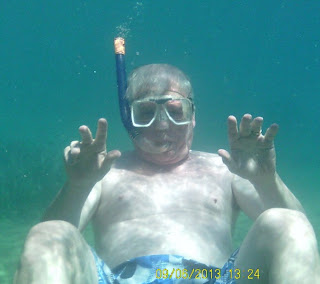Are we mad? Why are we exchanging our lifestyle of the last five years exploring the Med for the one we’ll go back to? We’ll have to wear shoes, lock doors, look left and right to cross a road. Mobiles will beep for our attention, people will interrupt a conversation with you to check their email. On the street no-one will make eye contact, strangers will think you’re weird if you say hello. And that’s before you consider the weather!
Well, for us one of the main reasons for cruising the Med is to explore remote places we wouldn’t otherwise visit. The experience has immeasurably enriched our lives. But for the first time this year we got the sense we are just doing more of the same. The trouble is, we’ve run out of Med to explore!
For Cathy living on the boat means the family is a long way off. The children have their own lives to lead now but she wants to be closer to her parents who aren’t getting any younger.
The more we think about it, we more we come round to the idea that there is life after Makarma. We’ve had an incredible adventure and created a huge stock of memories to draw on in years to come. Time and again she’s looked after us and brought us home safely. We want to leave while the going’s good and we’re still fit enough to open a new chapter in our life together.
Well, for us one of the main reasons for cruising the Med is to explore remote places we wouldn’t otherwise visit. The experience has immeasurably enriched our lives. But for the first time this year we got the sense we are just doing more of the same. The trouble is, we’ve run out of Med to explore!
For Cathy living on the boat means the family is a long way off. The children have their own lives to lead now but she wants to be closer to her parents who aren’t getting any younger.
The more we think about it, we more we come round to the idea that there is life after Makarma. We’ve had an incredible adventure and created a huge stock of memories to draw on in years to come. Time and again she’s looked after us and brought us home safely. We want to leave while the going’s good and we’re still fit enough to open a new chapter in our life together.





















































